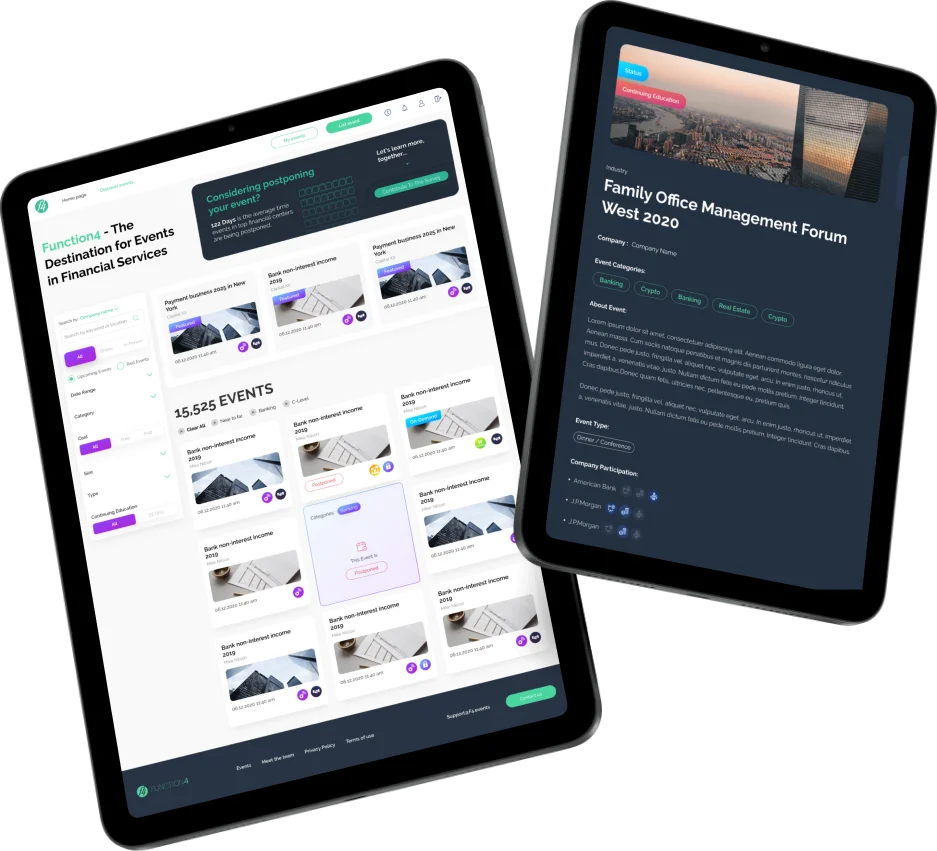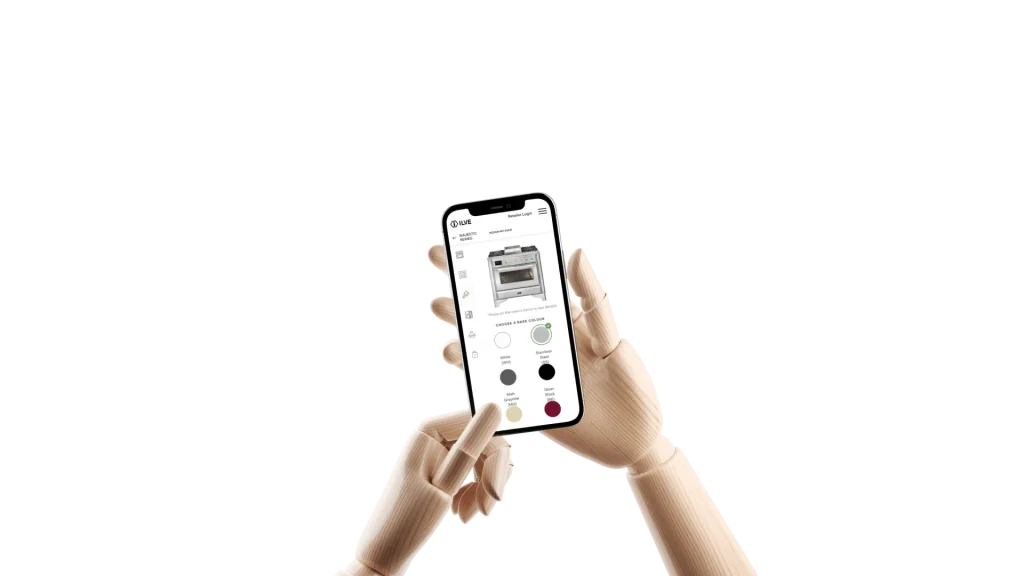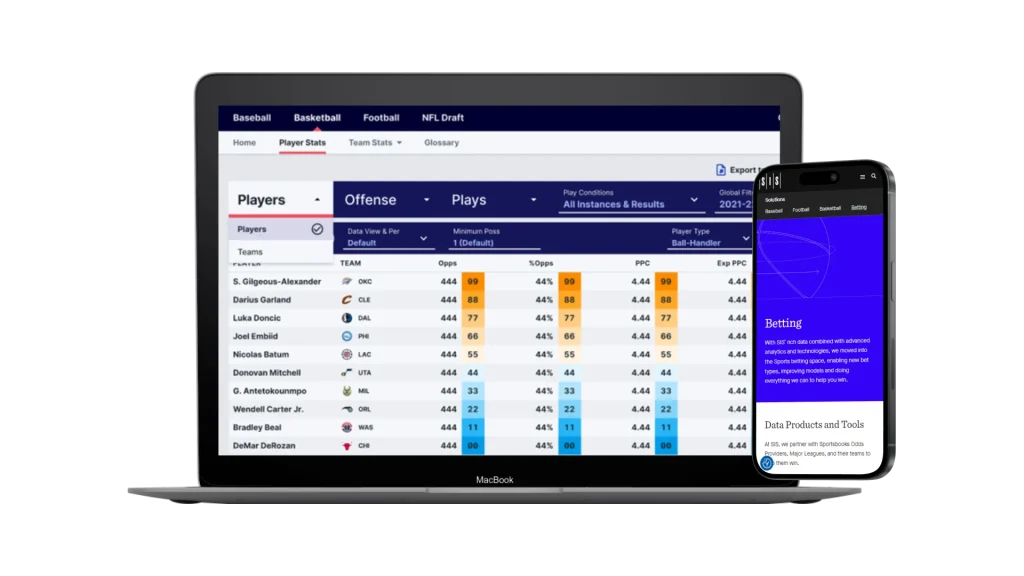Leveraging Java to create native Android applications on Kotlin and engaging Android SDK to deliver graphics, multimedia, and networking. Receive high-quality mobile apps that are optimized for performance, battery life, and user experience.

Java Development Company
What is Java and what is it good for?
Java is a powerful, versatile programming language and computing platform ideal for developing robust, scalable digital products. It excels in creating everything from web and mobile applications to large-scale enterprise systems, thanks to its platform-independent nature, strong security features, and extensive library of tools and frameworks.
Java is a popular choice for web and enterprise applications thanks to its scalability. It’s also often picked for embedded systems and cloud-based applications because of its high security, big data technologies thanks to strong memory management, and game development with its strong performance.
Java Software Development Services
Java is a time-tested programming language that unveils its versatility in action. Let Devox professionals help you leverage this tech stack in its complete value.
-
Mobile Apps
-
Web Applications
We build dynamic web applications using frameworks such as Spring, Hibernate, Struts, and JavaServer Faces (JSF) to deliver a scalable product through large amounts of traffic. We back responsive and intuitive user interfaces by powerful server-side processing.
-
Enterprise Applications
We make comprehensive enterprise-level applications using Java EE that support and streamline business processes, integrating seamlessly with corporate databases, transaction management systems, and security protocols. Get a reliable, scalable platform that can handle extensive business operations, improve productivity, and ensure data integrity.
-
Cloud-Friendly Platforms
Devox is developing and deploying Java applications in the cloud, offering our clients the advantages of cloud computing such as scalability, reliability, and cost efficiency. Let us create cloud infrastructure, set up a cloud platform, and tune integrations.
-
Migrations and Integrations
Transition from outdated systems to modern, Java-based solutions without disrupting your business operations. We handle data migration, platform updates, and application re-engineering with minimal downtime. Get improved system performance, security, and future-proofing against technological advancements. We employ RESTful APIs integration and progressive web app capabilities with a newly-made codebase.
Why Java For Your Project?
Platform-Independent
Custom Java development services enable cross-platform compatibility: Java programs run on any device with a Java Virtual Machine (JVM) installed, ensuring high portability and flexibility. This will save you time and money by eliminating the need to create and maintain separate apps for various platforms.
Scalable
Java's architecture allows for the easy scaling of applications from small to large systems. Performance optimization features, such as Just-In-Time (JIT) compilation and garbage collection tuning, enable Java applications to handle high levels of throughput and large datasets effectively.
Secure
Historically, Java was designed with security as a priority. Its platform architecture, which includes the JVM, enforces an execution model that prohibits certain operations by default. Java also offers features like bytecode verification, secure class loading, and the Java Security Manager, which together help protect applications from malicious software.
Rich Class Library
Java has a rich class library, which is an extensive collection of reusable classes, interfaces, and packages. This comprehensive standard library is directly available to Java developers, providing a wide array of functionalities that cover many aspects of programming needs, including concurrent programming, file input & output, networking, GUI development, and database connectivity, reducing the need to write this code from scratch.
High-Load
Java allows building highly resistant products that will withstand high traffic and stressed loading because of its in-built Java multithreading support, proper Memory management to avoid leaks, and handling high heaps. The aspects like JVM tuning, scalable input & output, multithreading and concurrency, as well as the range of frameworks and libraries contribute to its overall longevity.
Community and Resources
Enable your developers with the rich knowledge base and resources Java comes in pair with. The number of forums, blogs, tutorials, and open-source projects made available by the Java community will help your in-house team maintain the system and conduct troubleshooting in a wiser and easier manner.
Java frameworks we work with
-
Spring
Spring, the most well-liked Java framework, works well with messaging and message-driven apps. Additionally, it provides extensive support for large enterprise-level applications, making it a suitable option for future scaling.
-
Hibernate
Hibernate is an Object-Relational Mapping (ORM) framework that facilitates database communication between Java programs and databases. Instead of using SQL queries, it enables developers to interact with Java objects.
-
Struts
Web interface development features are provided by Apache Struts, which adheres to the Model-View-Controller (MVC) architectural paradigm. It works well for tasks that call for a structured approach to web development.
-
Apache Wicket
While Wicket uses a different programming approach than JSF, it is still a component-based web framework. It places a strong emphasis on reusable user interface elements and a clear Java-centric methodology.
-
Grails
A Groovy-based web application tool, Grails leverages the Spring Framework. It focuses on convention over configuration and quick development, enabling sufficient testing too: Grails promotes a strong testing culture, making it easier to write unit tests, integration tests, and functional tests for application components.
-
Vaadin
Vaadin offers a collection of pre-built UI components that lets developers create user interfaces with Java code. It works well for business apps as well as SPAs and PWAs.
-
Dropwizard
A framework called Dropwizard is used to create RESTful, high-performance web services. It streamlines the process of developing production-ready Java software by integrating many libraries.
-
Play
Play is a reactive web framework that may be used to create APIs and online or mobile apps. It is renowned for its stateless design, hot code switching, real-time capabilities, and developer-friendly features. It is also quite good at integrating with front-end frameworks.
-
Spark
Spark is a simple, user-friendly web framework with a basic design. It works well for developing proof-of-concepts, testing, and experimenting in addition to creating small to medium-sized web apps.
-
Dropwizard
Building RESTful web services is made easier and faster with Dropwizard as a framework, which offers an integrated collection of tools and libraries. It incorporates many libraries for setup, logging, and configuration.


Professional Event Ecosystem
Starting as a ticket selling website, Function4 grew to an all-in-one event management platform thanks to Devox’s help. It provides an ecosystem and data for comprehensive device setup, invitation and communication.
Additional Info
- Vue js
- GSAP
- Ruby
- Azure
USA


Kitchen Appliance Manufacturer
ILVE is a home appliance manufacturer operating since 1975 with a traditions-oriented brand. Devox helped ILVE provide more comprehensive user experience on their website and present their goods from a deeper perspective.
Additional Info
- Wordpress
- Woocommerce
- Javascript
- PHP
United Kingdom
FAQ
-
What role does Java play in modern software development?
Java remains a cornerstone in the realm of software development due to its robustness, platform-independent nature, and extensive community support. It’s widely used in enterprise environments, especially for backend systems, Android app development, and large-scale systems owing to its scalability and reliability. Java’s Write Once, Run Anywhere (WORA) capability ensures applications written in Java can run on any device equipped with a Java Virtual Machine (JVM). Furthermore, the continuous evolution of the Java platform, with regular updates and new features, keeps it relevant in today’s rapidly changing technological landscape. The introduction of features like lambda expressions, the stream API, and modularization with Project Jigsaw in Java 9, underscores its commitment to modernizing and improving developer productivity and application performance.
-
How does Java support the Software Development Life Cycle (SDLC)?
Java provides a comprehensive ecosystem that supports various stages of the SDLC, from conception to deployment. Tools like Maven and Gradle streamline project management and build processes, facilitating continuous integration and delivery. Integrated Development Environments (IDEs) such as IntelliJ IDEA and Eclipse offer powerful coding, debugging, and testing features that enhance developer efficiency and software quality. Java’s strong typing helps catch errors early in the development phase, while frameworks like JUnit support rigorous testing methodologies. Moreover, Java’s vast collection of libraries and frameworks, such as Spring and Hibernate, aid in rapid development, ensuring projects can progress smoothly from requirements gathering to maintenance and updates.
-
What are the most popular Java frameworks, and how do they compare?
Among the myriad of Java frameworks, Spring, Hibernate, and Jakarta EE (formerly Java EE) stand out due to their widespread adoption and comprehensive features. Spring Framework is renowned for its dependency injection feature, facilitating loose coupling and easier testability of components. It’s particularly favored for creating high-performance, complex web applications. Hibernate, on the other hand, simplifies database operations and ORM (Object-Relational Mapping), making data manipulation more efficient and reducing boilerplate code. Jakarta EE provides a robust platform for developing and deploying enterprise-level applications, offering a wide range of functionalities from web services to security and transaction management. Each framework has its niche, with the choice often depending on the specific requirements and scale of the project.
-
Why is Java considered a secure programming language?
Java’s design incorporates several built-in security features, making it one of the safer choices for application development. Its platform-independent bytecode execution in a sandboxed Java Virtual Machine (JVM) environment limits unauthorized access to system resources and ensures runtime security. Java’s strong type system, automatic memory management, and garbage collection eliminate common security vulnerabilities such as buffer overflows and memory leaks. Additionally, Java provides extensive APIs for secure data transmission, authentication, and encryption, further bolstering application security. Regular updates and security patches from Oracle also play a crucial role in maintaining Java’s security stature against evolving threats.
-
How does Java facilitate cross-platform development?
Answer: Java’s philosophy of “Write Once, Run Anywhere” (WORA) is central to its cross-platform capabilities. This is achieved through the use of the Java Virtual Machine (JVM), which allows Java applications to run on any device that has a JVM, regardless of the underlying hardware or operating system. This means developers can write their application code once and deploy it across multiple platforms without needing to modify it for each one. This cross-compatibility feature is especially beneficial for businesses aiming for a wide deployment across diverse computing environments, significantly reducing development and maintenance costs. Java’s extensive standard library further supports cross-platform functionality by providing a uniform, platform-independent interface to networking, file handling, and graphical user interfaces (GUIs).
-
How do Java 8 features enhance application development?
Java 8 introduced several key features that significantly enhance application development by improving readability, simplifying code, and enhancing performance. Lambdas and functional interfaces facilitate cleaner, more concise code, especially when manipulating collections with the Stream API. This allows for more expressive and efficient data processing patterns. Optional class helps in better handling of null values, reducing the chances of NullPointerExceptions. The introduction of CompletableFuture makes it easier to write non-blocking, asynchronous code, improving application responsiveness. Additionally, Java 8’s new Date and Time API offers a more intuitive and flexible way to handle time operations, addressing the shortcomings of the older java.util.Date and Calendar classes. These improvements not only boost developer productivity but also enhance application performance and maintainability.
Schedule a Meeting to Discuss Your Goals
Well contact you within a couple of hours to schedule a meeting to discuss your goals.
Let's discuss your project!
Share the details of your project – like scope or business challenges. Our team will carefully study them and then we’ll figure out the next move together.
Thank You for Contacting Us!
We appreciate you reaching out. Your message has been received, and a member of our team will get back to you within 24 hours.
In the meantime, feel free to follow our social.


